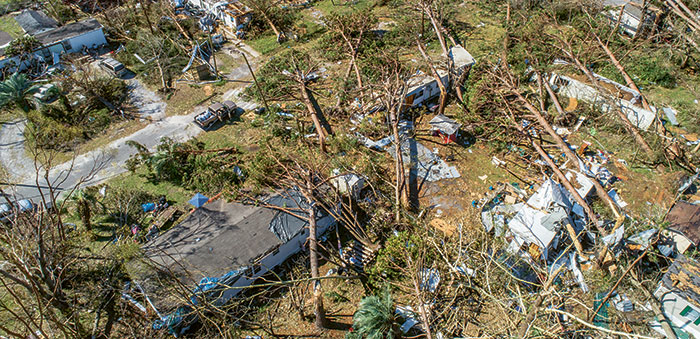The future is our collective choice

When Swiss Re first published a study identifying climate change as an emerging risk thirty years ago, the topic was lauded for its environmental importance, but was not yet perceived as a material business issue.
Today, with a wealth of scientific evidence at our disposal, that initial perception has considerably changed. There is clearly momentum. There’s less scepticism. But then, there’s also less time. And the effects of climate change are everywhere. Floods in India contrast with extreme heatwaves, droughts and wildfires in Europe and the US. Ice caps are melting and sea levels are rising; warmer seas will make the most severe types of typhoons and hurricanes even more destructive and likely more frequent.
Devising solutions for a growing risk
As a risk knowledge company, Swiss Re devotes a significant amount of brainpower to devising solutions to tackle this growing risk. Our claims and experience data we have collected over several decades and our refined natural catastrophe models facilitate risk assessment. They help raise risk awareness, and ultimately prepare and protect businesses and communities, strengthening their resilience. We have a long tradition of enabling sustainable progress by investing into the development of renewable energy sources like solar and wind, in addition to supporting sustainable investing by adopting ESG investment principles.
Work on what we can influence
By looking at its own value chain and identifying what it can influence, the private sector has many opportunities to take more courageous actions against climate risk. But to fully address today’s challenge we need a global effort. It will take collaboration across industries and between the public and private sectors. Public-private partnerships (PPPs) are particularly crucial, given the need to develop a conducive regulatory and policy environment to address climate risk. Investments in critical infrastructure projects by the private sector can relieve government budgets while supporting the development of resilient infrastructure, a crucial requirement for accelerating the transition to a low-carbon economy.
Nurturing solid economies and building societal resilience is a matter of global interest. The future is our collective choice. Let’s seize this opportunity.